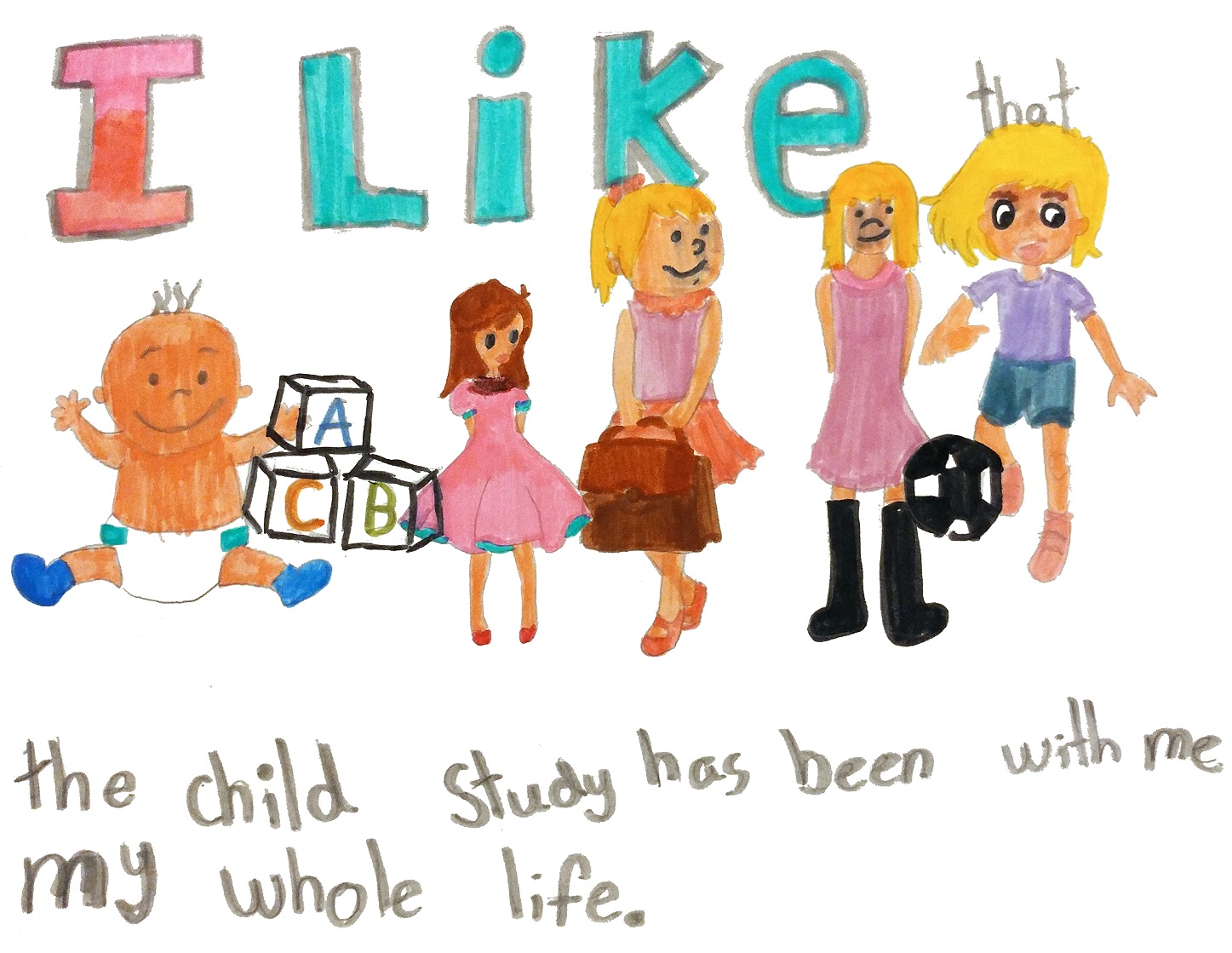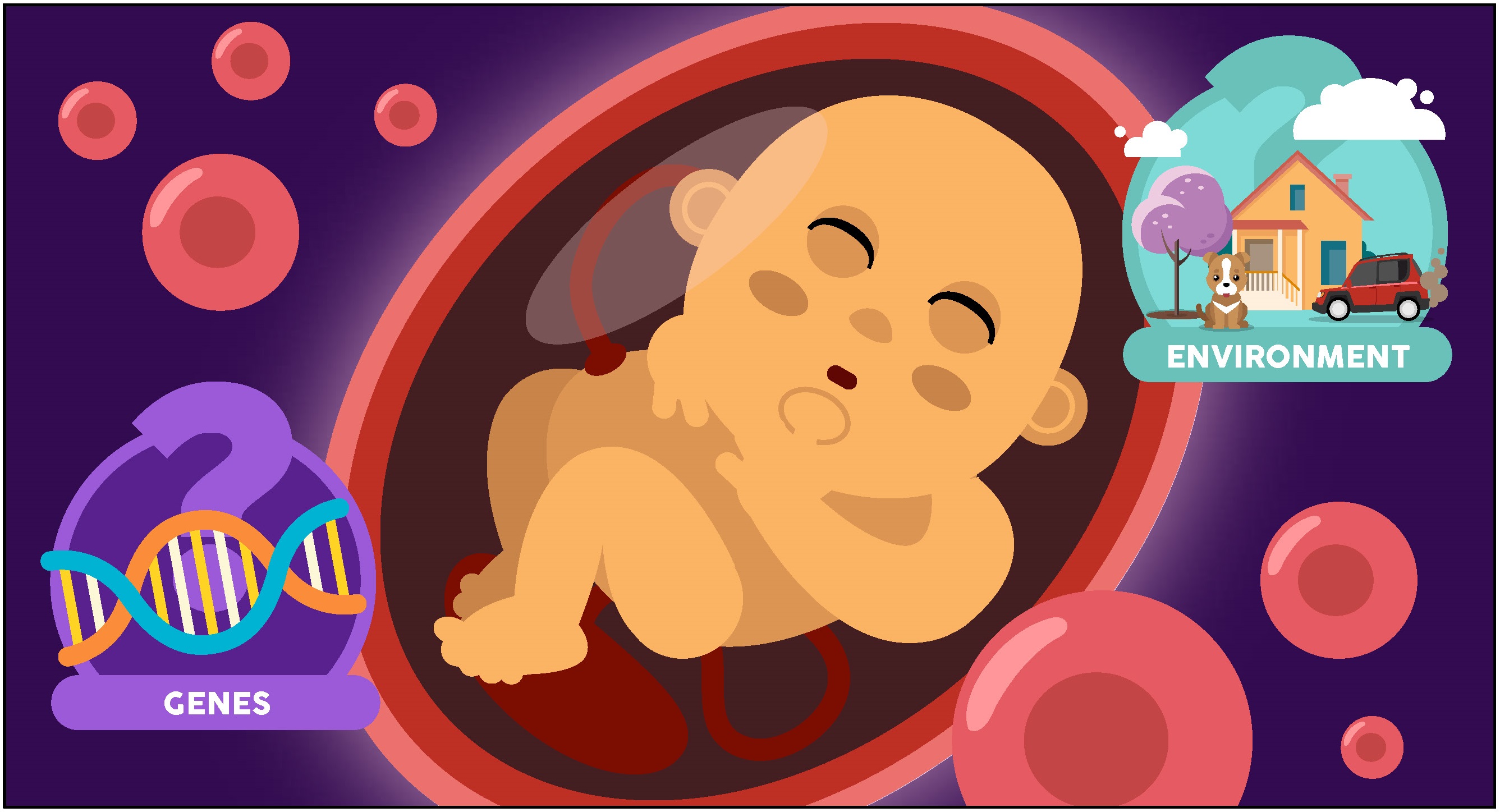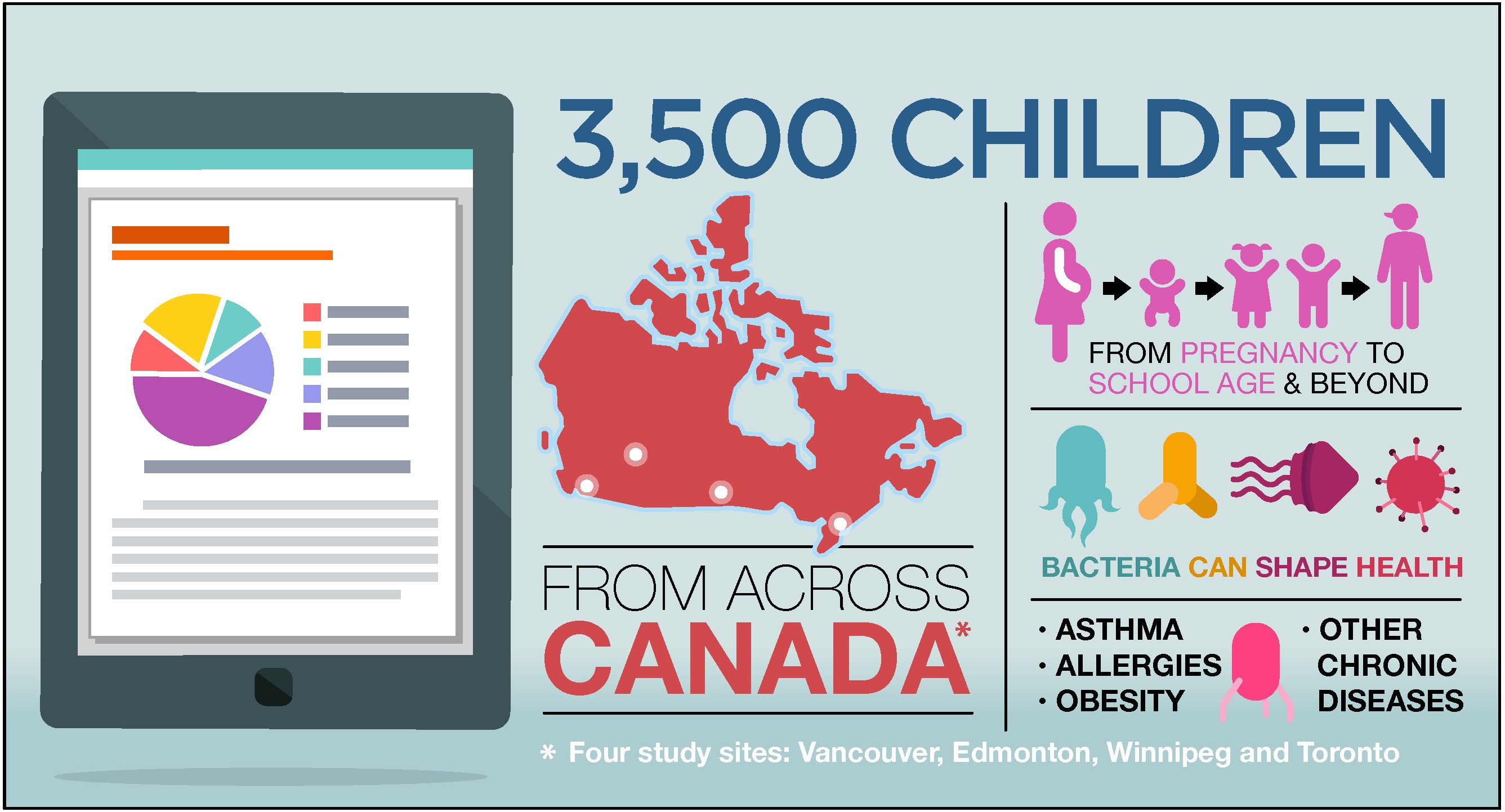What is the CHILD Cohort Study?
The CHILD Cohort Study is a prospective longitudinal birth cohort study.
This means that CHILD researchers are actively following the Study participants over time as they grow and develop—from mid-pregnancy into childhood and adolescence.
CHILD is designed this way so it can collect information at time points that are considered to be especially critical to the health and development of children.CHILD is designed to be one of the most informative studies of its kind in the world.
By following the participants prospectively as they grow, instead of retrospectively (looking back), CHILD researchers can learn more accurately about how different early-life exposures relate to health and disease outcomes.
CHILD findings are influencing medical practice, parenting choices, consumer product regulation and policy development—from building codes and household purchasing behaviours to decisions about childbirth, diet, breastfeeding, or owning a family pet.

MISSION STATEMENT
The CHILD Cohort Study is…

A robust Canadian research platform to understand the development of disease so it can be predicted, prevented or better treated
Launched in 2008 with funding from AllerGen NCE Inc. and the Canadian Institutes of Health Research (CIHR), the study recruited over 3,500 pregnant women who gave birth between 2009 and 2012, in Vancouver, Edmonton, Winnipeg and Toronto, and is following their children from before birth to school age and beyond.

An unprecedented pool of early-life human genetic, epigenetic and microbiome data
The study is capturing information on these children, their parents and environments from biological samples (cord blood, meconium, breast milk, urine, blood, nasal swab, stool), questionnaires (family history, maternal stress, nutrition, child health, medications, indoor and outdoor environment), home assessments (visual inspections, dust sampling) and clinical assessments (lung function and allergy tests).

A national effort involving four provinces
Frontline research teams, in over 20 scientific disciplines, are studying the children’s health and development and creating comprehensive biological, psychological, genetic and environmental profiles for parents and children participating in the study. These profiles allow the researchers to track the onset of asthma, allergies, obesity, diabetes and other chronic diseases across a large group of individuals.

Empowering Canadians to shape healthy futures
Findings fueled by CHILD samples and data will influence personalized medical practice, parenting choices, consumer product regulation and policy development for healthy communities, and could lead to new diagnostics, treatments, management approaches and prevention strategies for a variety of chronic diseases.
